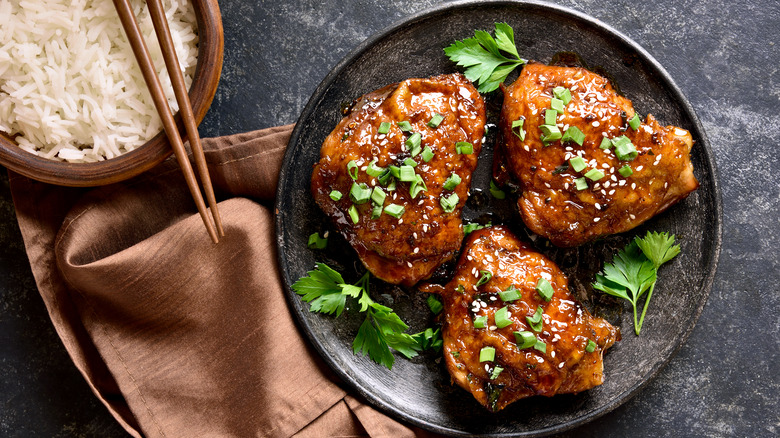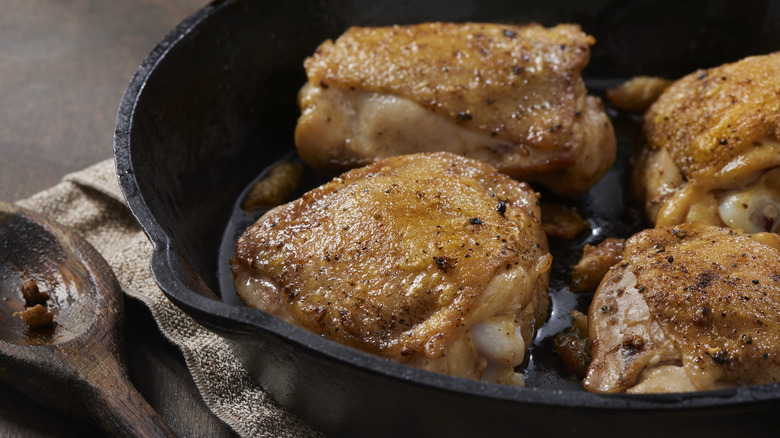Pour Boiling Water On Your Chicken Thighs And Thank Us Later
If you've ever ordered roast chicken off the menu at a Chinese restaurant, chances are it was actually a dish called Shandong chicken. At first glance, it looks no different from any other chicken you'd roast in the oven, but as soon as you take a bite of it, the difference is obvious. Not only does Shandong chicken have a delicious flavor, the skin is always perfectly crispy while the inside remains juicy and tender. Attempt to recreate this dish at home, however, and you might find that it's never as crispy as you'd hope it to be. So how do Chinese cooks do it?
Most roast chicken recipes involve putting the chicken right in the oven, but Shandong chicken entails pouring boiling water over it first. Since boiling chicken usually yields a rubbery, flavorless end result, this is probably the last thing you'd think to do. But there's a reason it's so effective at crisping up the skin.
Why boiling water is the key to crispy chicken thighs
It's generally known that in order to ensure chicken skin crisps up, it has to be dry. The most common way to go about this is to pat it with a paper towel. The reason this step is so crucial is that browning can only occur in the absence of moisture. However, browning is often delayed by the skin fat and chicken juices that flow out during cooking, as well as any moisture on the surface of the skin. While the paper towel method can take care of the surface moisture, it can't exactly address the skin fat. That's where boiling water comes in.
As demonstrated by YouTuber Made With Lau, it's as simple as ladling boiling water over the chicken skin until it appears to tighten. This process causes the subcutaneous fat to render out ahead of time instead of during the roasting process, ultimately allowing the chicken skin to more effectively crisp up. Keep in mind that after pouring boiling water over the chicken, the skin surface will obviously be wet, so this is where you can either pat it dry with a paper towel or, for best results according to Made With Lau, use an electric fan.
When to marinate the chicken
When it comes to roasting chicken, the process usually starts with brining, then marinating, and finally cooking. But if you're making roast chicken using the Shandong technique, the steps are a little different because otherwise, you'd just be washing most of the seasoning away with boiling water. The first step is to use a dry brine, or what is essentially a dry salt bath that you brush away. Instead of immediately following the brine with a marinade, you first go in with the boiling water. Once the skin is tight and dry, you can add a marinade and let it sit overnight. Shandong chicken uses soy sauce, Shaoxing wine, and ginger; however, you can use any marinade you'd like.
For optimal crispiness, it's best to leave the chicken uncovered as it marinates. This will ensure the skin remains as dry as possible. When you're ready to cook your chicken, you can either roast it in the oven like you normally would or fry it twice in a wok. Afterward, you can add your choice of sauce, and no matter how much you drench it with, it'll still be crispy thanks to the boiling water.


